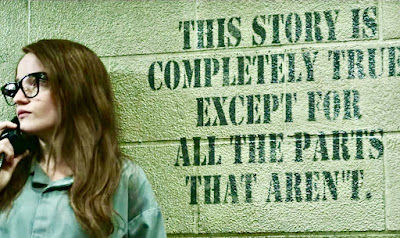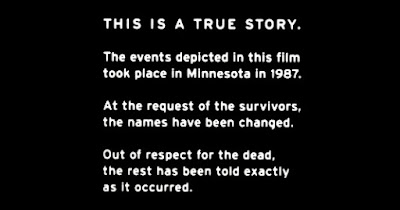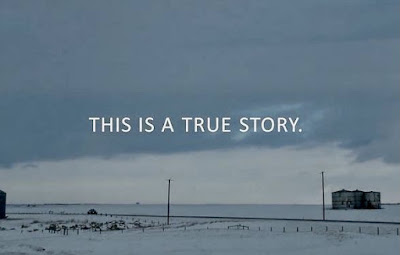The opening of each episode of the new Netflix show, Inventing Anna, includes a disclaimer: “This whole story is completely true. Except for the parts we made up.” This is repeated throughout the 9-episode run of the show, embedded in the scenery (in newspaper headlines, Times Square mega screens, elevator doors, street signs, etc.) with slight variations like “Totally made up,” and “Total Bullshit.”We’ve all seen the “Based on a True Story” disclaimer so many times that we might not notice it anymore. Maybe because we knew going in that it was inspired by events that happened, or because we know that with all the dramatized embellishments it probably isn’t very accurate anyway.
In 1996, Joel and Ethan Coen’s FARGO opened with this:
It was revealed later that the Coens made up material possibly from real accounts of kidnappings, murder, and a woodchipper. Joel told an MTV interviewer that, “If an audience believes that something’s based on a real event, it gives you permission to do things they might otherwise not accept.”
FARGO star William H. Macy told Vox’s Todd VanDerWerff, “I said to Ethan [Coen], ‘You can’t say it’s a true story if it wasn’t.” He said, ‘Why not? It’s just a crawl on the screen.’ I said, ‘Uh...”
FX’s Fargo, the series adaptation, continues using this motif in each episode.
Another example of another dissociation to the “Inspired by true events” disclaimer is the opening of David O. Russell’s 2013 crime comedy AMERICAN HUSTLE:
Many other movies and shows have used these style caveats, so maybe I’ll add to this in time. Maybe you can think up some too.More later...





No comments:
Post a Comment